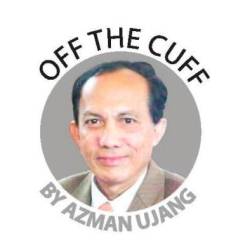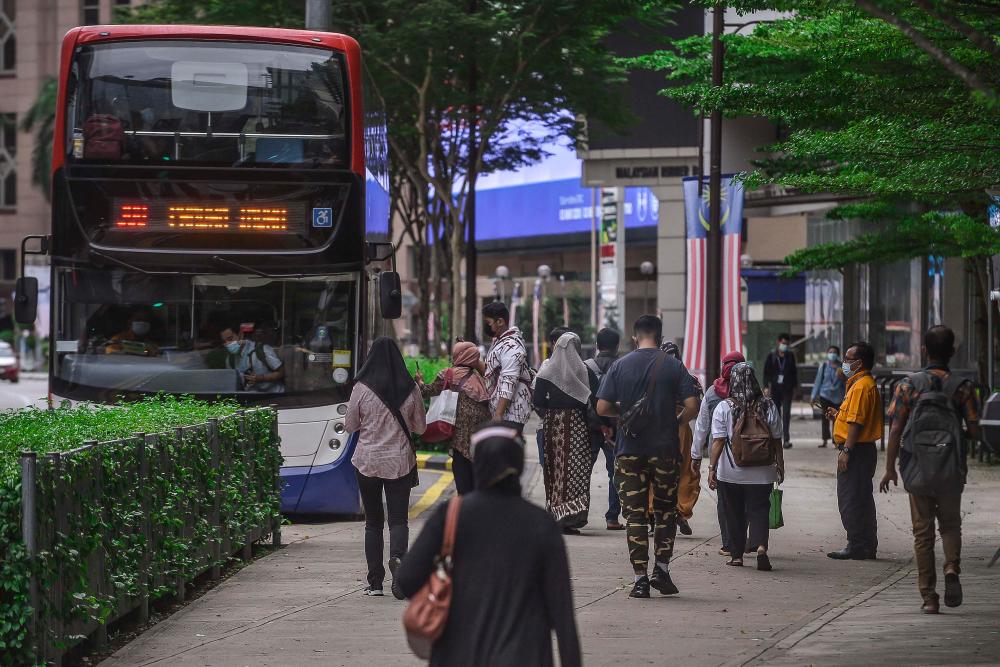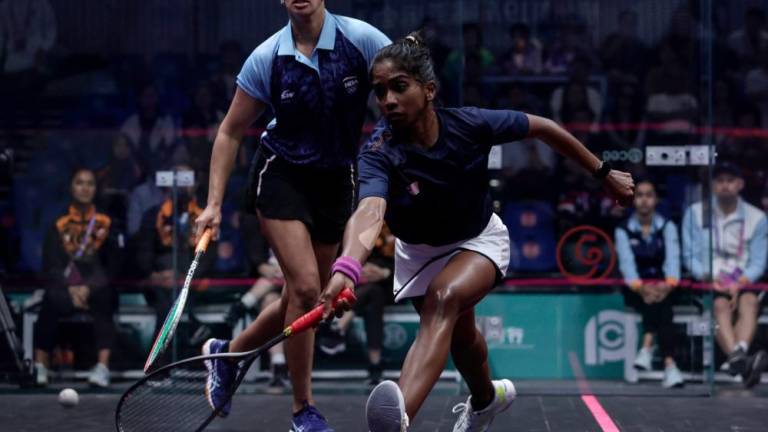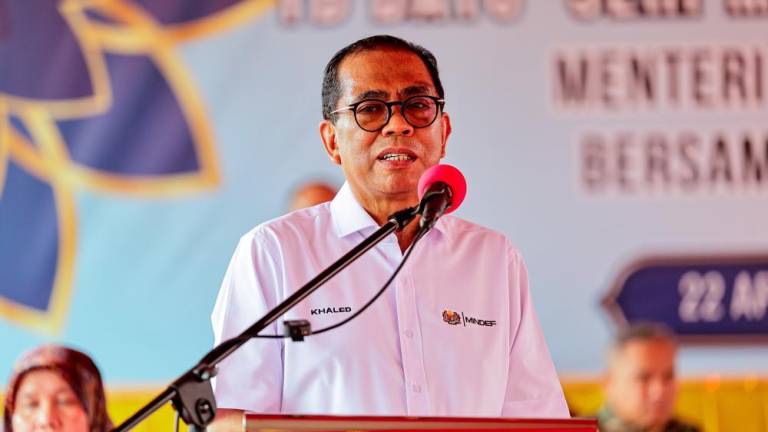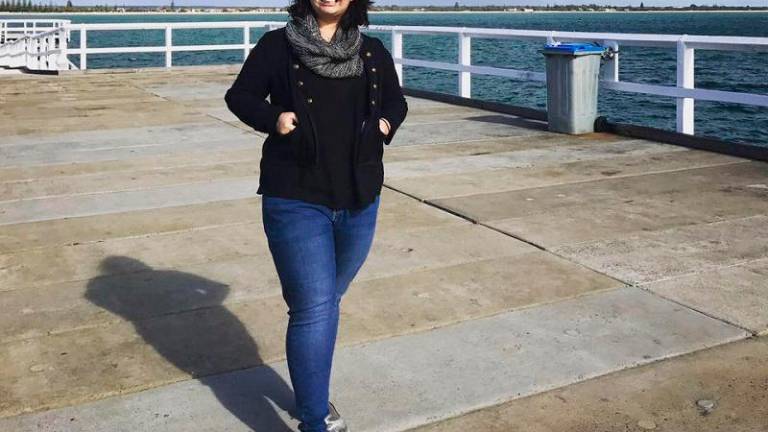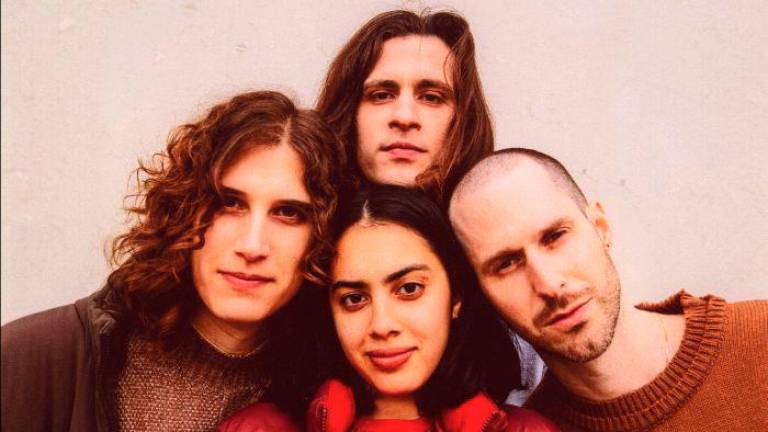MY column this week shifts into sombre mode or mood, which I must admit has taken me considerable time to procrastinate whether to write it at all.
Yes, it has to do with tragedies as the headine indicates, but these tragedies are so heart-breaking to say the least. In fact, even expert wordsmiths may not be able to portray the chilling impact it has on anyone who reads about such stories.
As I write, I must take my hats off and salute Prof Dr Mohd Tajuddin Mohd Rasdi for his column in The Star on Tuesday, which certainly leaves all readers speechless and many, like myself, in tears.
I am among thousands of admirers of his column but the opening lines of his latest, when he wrote that he has put off writing it for two years, raised so much anxiety among readers.
He then went on to say that writing the 900-word piece was more painful than taking three years to write a 100,000-word thesis, adding that he could do three more theses if he could avoid writing that particular column, which was headlined: “A Great Malaysian Tragedy”. The subhead asks this question: What does it say about a nation when it fails its most vulnerable people?
For the benefit of those who did not get to read Tajuddin’s latest column, he wrote on a news report about an Indian Malaysian family, whose father killed all his children.
The report related how the mother died of cancer a few days earlier and the father, who was jobless and in poor health, ended up killing his 15-year-old son and three other children by strangling them. After that, he hanged himself.
Tajuddin, who is Professor of Architecture at UCSI University, wrote that two weeks after this tragedy, the media reported that another destitute Indian Malaysian family whose parent, also suffering from an illness, killed his children.
Several months later, came another report of Chinese Malaysian parents who poisoned their four children and then themselves. At the last minute, an ambulance was called but all the children died while the parents survived. And just last week, a father, whose race was not stated, smothered his three children after his wife died.
“After each of these cases, our nation went on with business as usual. No professors from our over 200 universities raised the issue. No religious clerics from any religion made it into a social and political issue. No NGO (non-governmental organisations) stood up and demonstrated or wrote press statements about the tragedies,” said Tajuddin. He wonders, too, if he is the only one who cringes at news of parents killing their children or the only one who asks questions.
Tajuddin also asks so many pertinent questions, which make us all ponder what we can do to be a more caring society or even a ”busy body” to our neighbour, who may be having domestic problems that drove parents, as cited above, to do what they did.
Questions such as why did these parents not seek help from other family members? All of us have wider family circles and if we begged them to care for one child each, surely they would respond.
“I have no issue whatsoever if adults decide to take their own lives but I am aghast and crushed when children are killed just because one cannot figure out how to feed and care for them,” he added.
There are many out there who may disagree with his view that there isn’t any issue with adults taking their own lives because lives are lives whether it involves adults or children. And adults could likewise seek help from extended family members for their mental, financial or other issues instead of succumbing to such suicidal inclinations.
But the professor strongly argues that all children in this country – and the world – should be cared for and given a minimum chance to survive until they can make their own way.
There have been calls made by NGO and concerned social activists in the past for a specific department in the Welfare Ministry to cater to children’s well-being, especially given the growing number of child abuse cases.
With the Covid-19 pandemic expected to continue raging with no end in sight and leaving countless number of families poorer than they already are, the need for this department is now even more critical.
Strictly speaking, the family tragedies Tajuddin highlighted could have been avoided if preventive help had been sought or came on time. For one, as he advocated, they could have asked for help from congregants from a mosque, church, temple or gurdwara to help their children.
They could very well, for example, have taken the kids to a mosque and begged for help and even asked to stay at the mosque. They could help sweep the floor of the mosque or scrub its toilets, and then ask restaurants for leftovers so they could feed their children and themselves.
What should the government do for such families is the question the rakyat would like to ask too? If only the families had gone to a Zakat office or Welfare Department for help, as well as other welfare institutions and orphanages, and even reached out to the media.
Tajuddin also posed questions like what are the Zakat and Welfare Department officers doing and why are they not proactively walking the streets and looking under bridges for the homeless, as well as talking to residents in low-cost flats to help families facing destitution?
The sombre tone of this column cannot help but mention an equally heart-wrenching article by Bernama published by newspapers on Wednesday, this time involving medical frontliners at hospitals desperately saving lives of Covid-19 positive patients.
Dr Muhammad Firdaus Mat Noh from a hospital in Kluang spoke of how the staff had to handle childbirths involving Covid-19 patients. “We have to save two lives, the mother and the unborn child. The delivery process is done through caesarean, the best surgical procedure we recommend to prevent transmission of Covid-19,” he said.
But Muhammad Firdaus said the situation became heart-breaking when doctors had to choose between the mother and the unborn child as only one life could be saved. “These are tragic situations, and it is not easy to watch a newborn without a mother or the mother’s loss of her baby”.
Another doctor at a hospital in Penang, Dr Sophie Mak Yi Hong, cited how doctors fought for the lives of Covid-19 patients until they drew their last breath. “I had a patient whose last words to me were ‘doctor, save me’,” said Mak.
As I shed tears writing this, let me sign off by again appealing to the prime minister, Datuk Seri Ismail Sabri Yaakob, to approve a year-end bonus for our medical frontliners out of the three-month deduction from the fixed allowance of civil servants that were completed last month.
Comments: letters@thesundaily.com



